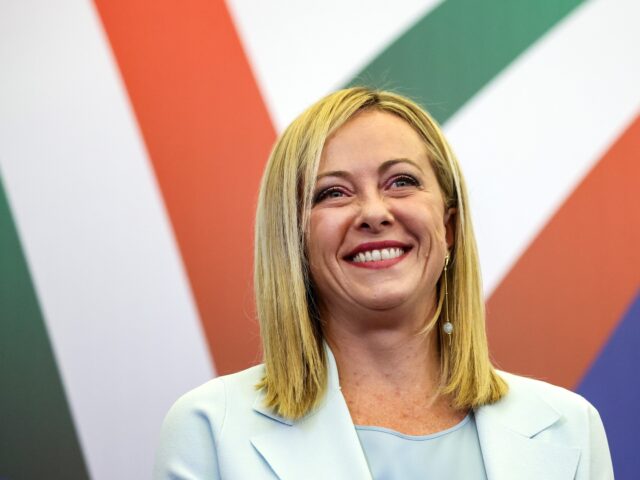Dividends have begun to pay off for Italian Prime Minister Giorgia Meloni’s migration strategy as figures have shown a near-two-thirds reduction of illegal arrivals over last year.
Statistics released this week by the Italian Interior Ministry showed that 41,530 illegal immigrants landed on the country’s coasts since the start of the year.
While still historically high, the figure represents a 64 per cent decline over the same period last year, when 114,513 were recorded reaching Italian beaches amid a massive wave of illegals pouring across the Mediterranean from North Africa, particularly Tunisia. The figures also show a drop compared to 2022 when illegal migration was still hampered by the coronavirus.
There has also been a marked difference in the number of unaccompanied minor arrivals, with 5,044 recorded so far this year, compared to 18,820 in 2023.
Meloni has faced criticism at home and abroad for failing to implement a hardline approach to illegal migration, having campaigned on a naval blockade in the Mediterranean but instead choosing to opt for diplomatic solutions through Brussels mechanisms, working closely with EU chief Ursula von der Leyen to negotiate deals with countries like Tunisia and Egypt to crack down on people smuggling networks in exchange for European aid.
Deals with Tunisia and Libya have also been paying off in the repatriation of illegals, with 5,000 already being sent back to Libya this year and 4,000 being sent back to Tunisia since January.
Meloni has also negotiated a bilateral deal with Albania to open up asylum processing centres to process their claims rather than allowing them to remain in Italy while awaiting a decision. Although this deal has yet to come into effect, it is not expected to begin within the coming weeks, the threat of being sent abroad by Italian authorities has been credited as playing a deterrent role for further illegal arrivals.
Meloni’s government has also sought to strengthen laws at home, including increased penalties for people smugglers and migrant boat captains, restricting the right to work for some asylum seekers, and a crackdown on pro-open borders NGOs, whom the government accuses of aiding people smugglers transport migrants to Europe.
Interior Minister Matteo Piantedosi, an ally of immigration hardliner Deputy PM Matteo Salvini, has described the approach as a “360-degree strategy” by the government to reduce illegal immigration.
Piantedosi said earlier this month that the next priority of the government will be to launch “financial investigations to combat the criminal organizations that manage migrant trafficking.”
Although Meloni’s strategy seems to be paying off for Italy, it has coincided with a surge in illegal migration to fellow Mediterranean EU nations, with landings surging by 155 in socialist-run Spain and 222 per cent in Greece this year, according to France’s Le Figaro.
The Italian PM’s relative success has seen her support solidify, with her Brothers of Italy party surging to 28.8 per cent of the vote in June’s European Parliament elections, a fourfold increase over the previous election in 2019 and surpassing the 26 per cent won in the 2022 Italian elections when she came to power. Having personally led her party in the EU elections, Meloni has also cemented herself as a major power player in Brussels, now leading the third-largest coalition within the bloc.
Commenting on the success in driving down illegal immigration, Marion Maréchal, an MEP in Meloni’s European Conservatives and Reformists (ECR) and niece to French populist leader Marine Le Pen, wrote on X: “The Meloni method works! Against immigration, there is no inevitability, we can act to stop the arrival of migrants on European shores.”

COMMENTS
Please let us know if you're having issues with commenting.